Latest News
Working on the Frontlines of Humanity
Posted by on April 4, 2014 at 10:31 AM EDT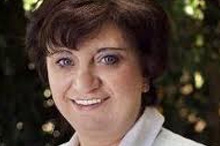
Nahla Kayali is being honored as a Cesar E. Chavez Champion of Change.
Dr. Martin Luther King Jr. said “You only need a heart full of grace. And you can be that servant.” My passion to serve humanity runs through my veins. To serve humanity is not dictated by the color of your skin, the credentials you hold, or the amount of money you make; it’s a blank passport. All you need is love, which is universal. I have dedicated my life to serving my community and working to ensure it has the resources to thrive. Thus, I am honored to be a White House Champion of Change.
It was during my divorce as I was trying to rebuild my life that my story of service begins. During my quest to enroll my daughter in health insurance, I learned about the Children’s Health Insurance Program (CHIP). Concerned for my child’s health, I right away enrolled my daughter in CHIP. I then asked myself—does my community know about CHIP?
I knew my community was underserved and didn’t have access to many resources so I made it my mission to start helping my community and that began with starting a non-profit agency. While my daughter enjoyed story-time at the library, I read piles of books on how to start a non-profit. As a single mom, immigrant, and with no education beyond the 8th grade, I came across challenges that discouraged me from pursuing my dream, but my guidance from Allah and love for humanitarian work reminded me that my destiny is to start an organization to serve my community.
Access California Services (AccessCal), a non-profit community-based culturally and linguistically competent family resource center, came to life in 1998. I received a $2,000 grant from Community Action Partnership of Orange County and worked out of a one-room office using a folding table and telephone I brought from home. I was the organization’s first volunteer. My first task was to outreach and enroll underserved children in CHIP.
Through this program, I learned that the community needed much more than health coverage. I collaborated with the community to implement a needs assessment that surveyed 200 families. Through the assessment, I determined what other services were needed, and with that, our organization grew. Today AccessCal provides 12 programs including health access, mental health, employment services, immigration and citizenship services.
It’s been 15 years since AccessCal was established. AccessCal is my second home. When I walk down the hallways of the organization and see our refugee and immigrant clients crying tears of joy—it becomes my joy. When Khalid got his first job as a lab technician to help him put food on the table for his kids, when Fatima pledged allegiance to the flag and became a registered voter, when Sarah got health coverage to address her cancer diagnosis, when Nasser learned how to speak English to speak to his grandkids, when Mariam and Saeed saved their marriage after receiving counseling, and when Faisal learned to type a resume after taking our computer classes, I was reminded we have the capacity to change lives.
It’s an honor to have AccessCal recognized at the government level. Through grants at the federal, state, county, city, and foundation level and with the in-kind support of volunteers, community members, advocacy organizations, and business owners we are able to continue the work we are doing—which is serving humanity.
Nahla Kayali is the Founder and Executive Director for Access California Services, a non-profit community-based family resource center dedicated to providing Arab-Americans and Muslim-Americans in Southern California with culturally and linguistically competent health and human services.
Learn more aboutThe "Public Good" Is Not a Dirty Word: Rebuilding Our Collective Responsibility
Posted by on April 4, 2014 at 10:17 AM EDT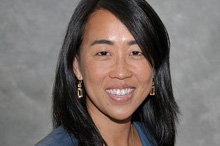
Helen Gym is being honored as a Cesar E. Chavez Champion of Change.
I was raised in Columbus, Ohio, the daughter of immigrants. Like most immigrant families, my parents did not have that much. As a child, my life revolved around the public institutions in my neighborhood—the parks, the libraries, the local recreation center, and of course my public school. These public spaces opened up the world around me to new opportunities, a diversity of people and ideas, and a chance to really engage and participate.
My parents and I relied on these public resources to give me the kind of education that our family couldn’t provide on its own. These public spaces were great equalizers, places where people from all backgrounds came together and understood—in a personal way—what it means when a society provides opportunities to its citizens.
I think a lot about the fragility of our public spaces today.
There is no question that our collective spaces are becoming increasingly diminished. In Philadelphia, our drastically underfunded public school system—where my three children attend—is in virtual freefall from spiraling political and financial disinvestment. Our school district has closed dozens of public schools and stripped essential services from each and every school community.
Meanwhile, we see hyper individualized notions of choice replacing what was once a fundamental, collective responsibility to provide an equitable and quality public education to all our children. To me, public education and the responsible and loving care of our children is the central issue of Philadelphia’s future. In a city where 39 percent of children live in poverty, it is essential that we institutionalize quality public schools in every neighborhood for every child.
That is why so much of my work is rooted in rebuilding our sense of public good and shared collective responsibility. At Asian Americans United, a 28-year-old community organization in Philadelphia Chinatown, we have created vibrant investment in public spaces through the establishment of a Chinatown arts festival that takes over the streets of a hard fought-for neighborhood; we have founded a school celebrating folk arts and serving many immigrant families that lies on the footprint of a historic struggle over community vision. And we’ve worked with young people to create a new generation of leaders who will care for our communities and preserve the public trust.
I co-founded Parents United for Public Education with fellow, like-minded parents to address poverty, inequity and disinvestment in long-neglected school communities. We are building conscious anti-racist leadership so that the hurts inflicted on our communities do not perpetuate racial divisions. We need strong parent voices to challenge perceptions of disengaged parents or “broken” families and school communities. Our parents have testified on budgets and tax policy, we’ve challenged abusive disciplinary practices, and called for collaborative partnerships with teachers and parents. In a city segregated by class and race, we’re working to build multiracial coalitions of parents to improve school practices, fight for new funding, and build public support for nurturing, stable rich learning environments for our children.
I’ve learned that our public spaces, our communities and our schools are not just places that exist in stasis. We have to learn to fight to preserve these spaces, to uplift them and to pass down the lessons of preservation and community to our children and our fellow neighbors. I see this work as a constant process of engagement, of seeking knowledge and solutions that not only alter unjust situations but transform our relationships with one another and open up possibilities for a new future.
Helen Gym is a community and educational leader in Philadelphia, where she serves on the board of Asian Americans United. She is co-founder of Parents United for Public Education, a citywide group of parents working for equity and justice in Philadelphia’s public schools.
Learn more aboutOpening Doors to Opportunities for a Better Future
Posted by on April 4, 2014 at 10:01 AM EDT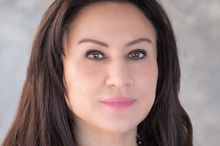
Sandra Gutierrez is being honored as a Cesar E. Chavez Champion of Change.
Parents are among our country's unsung heroes. They shoulder the most important responsibility of all—raising our beloved country’s future generations. The parenting journey is rewarding, often challenging, and lasts a lifetime.
I’m grateful to be considered a White House Champion of Change and remain ever inspired by the hard-working families I have been privileged to learn from and work with for over 40 years.
Parents—regardless of their level of education, first language, immigration or economic status—have similar aspirations for their children. I often hear parents say, “I came here to work, to work hard, so that my children will have more opportunities than I had. I work so they will have a better life and a better future.” As leaders of their families, parents make decisions of great consequence, especially for young children. The good news is that small, positive daily acts—talking, counting, reading, singing—can have a big impact on children’s success.
The Abriendo Puertas / Opening Doors program acknowledges and honors that deeply held aspiration of many parents for a better future for their children. Abriendo Puertas is a two generation model designed to support this vision by working with Latino families to ensure that parents of children aged 0 to 5 are informed and engaged as their child's first and most influential teacher.
We frequently hear about the “achievement gap” between Latino and non-Latino children. I believe “opportunity gap” is a more honest term, because it identifies the root of the gap as systemic and circumstantial, rather than a failure on the part of the child. At Abriendo Puertas, we expand opportunities for families by taking the best research off the shelf and making it accessible and actionable for Latino parents throughout United States.
The Abriendo Puertas curriculum, infused with parent input, uses popular education methodologies. We demystify school readiness and promote parent leadership and advocacy. We provide key local data and outside resources such as Let's Move!, MyPlate, U.S. Dept. of Education Early Learning, and the Affordable Care Act. Armed with greater confidence and data about the education, economic and health status in their own neighborhoods, parents become vocal advocates for improving underperforming schools, increasing social and economic resources, and promoting healthier lifestyles.
In our efforts to ensure best practices and to contribute to the field, Abriendo Puertas recently participated in a rigorous independent evaluation by Child Trends. The study found that our program has a number of important areas of impact, especially related to education. These findings will allow us to continue to improve our services and focus our efforts in areas where we can have the most impact.
Cesar Chavez once said, “Once social change begins, it cannot be reversed. You cannot uneducate the person who has learned to read. You cannot humiliate the person who feels pride. You cannot oppress the people who are not afraid anymore. We have seen the future, and the future is ours.”
His clear belief in the heroism of farmworkers and the power of advocacy and collective action inspires us to work hard so that parents’ hopes and dreams for their children are converted into clear goals and informed plans. Important challenges—need for immigration reform, improving education quality—demand attention and are key to unlocking the incredible potential in our rising diversity. With the current historic focus on early education, reading, family engagement, and on boys of color, the climate is conducive for parent leadership and advocacy to help eliminate the opportunity gap and create a better future for children.
Sandra Gutierrez is the National Director of the Abriendo Puertas/Opening Doors Program. Abriendo Puertas/Opening Doors is the nation’s first comprehensive and evidence based training program developed by and for Latino parents with children ages 0 to 5.
Learn more aboutReimagining Education in the 21st Century- Aloha ‘Āina (Love the Land)
Posted by on April 4, 2014 at 9:45 AM EDT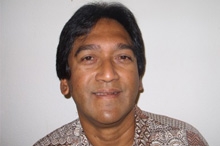
Herb Lee, Jr. is being honored as a Cesar E. Chavez Champion of Change.
Twenty years ago, I took on the responsibility to preserve and restore a 400-year-old ancient Hawaiian fishpond called Waikalua Loko. As a child, I grew up in the area and never knew the pond existed. I did not know a lot about fishponds, but I was overcome by a feeling to mālama or care for this place.
I recalled my Hawaiian grandmother who had passed away some 30 years prior about the lessons and depth of Aloha that she lived and tried to teach us. I remembered the sacrifices my parents made to send us to good schools so that we could have a better education than they did.
As Hawaii changed and became a state, so did we. As I got older, I felt a deeper calling to understand the ways of old, the connection to place, to people, the culture and the richness that was uniquely Hawaii.
The restoration of the pond became both a physical and spiritual journey of understanding and awakening that I only began to comprehend. Many others were equally drawn to this place for reasons unknown but have been gratefully accepted. They have become mentors, teachers, stewards and most of all family.
One day, a teacher from a local high school asked to bring her class to the pond as an extended “community classroom.” In an effort to make her science lessons more relevant, she was hopeful that a more “hands on” experience would do the trick. The transformation we witnessed inspired us to pursue innovative opportunities to reach more students in the community.
In 2000, the Waikalua Loko Fishpond Preservation Society partnered with the Pacific American Foundation (PAF), a non-profit 501(c)(3) organization to embark on a journey that would evolve into the Aloha ‘Āina framework built on relationships, relevance and rigor.
By 2005 through 2011, PAF received numerous awards and recognition by the Native Hawaiian Educational Council, the Hawaii Department of Education and the Hawaii Historic Foundation for its work in developing a “new model” for culture-based education, preservation and stewardship of the environment in Hawaii. Since then PAF has had numerous opportunities to expand its curriculum development to Hawaii’s coral reef systems, other ahupua’a throughout the state, the Island of Kahoolawe, the science of tsunamis, and sea level rise.
Why education? In the 21st century, one’s level of educational attainment is directly proportional to good health, career advancement, employability, and stewardship of both individual and collective resources (community) in the places we choose to live. Further, Hawaii’s unique and isolated geographic conditions have provided the native and indigenous Hawaiian people of the islands with a rich cultural and sustainable method of living that is unmatched throughout the world. Thus the merging of traditional knowledge that is still practiced today with 21st century skills has catalyzed a new and rediscovered formula for how we teach children in the modern age.
To date PAF has developed (1) over 200 partners throughout Hawaii, the Pacific and the U.S. continent to support its success and mission; (2) enrolled over 21,000 students in its career planning system; (3) trained over 3,500 teachers statewide; (4) have over 70,000 students, parents, teachers and community members learn and steward the fishpond; and (5) provided fiscal sponsorship services for 12 community organizations.
As we approach each new school year, we hope to continue to learn from each other to give teachers, students, families and communities the tools and resources they need to be successful.
Herb Lee, Jr. is the Executive Director of the Pacific American Foundation located in Kāne’ohe, Hawaii, a non-profit dedicated to improving the lives of Pacific Americans.
Learn more about VeteransYouth Development: It’s the Other Way Around
Posted by on April 4, 2014 at 9:30 AM EDT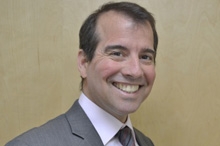
Diego Uriburu is being honored as a Cesar E. Chavez Champion of Change.
Montgomery County—like many communities across our nation— has changed. Its residents’ average income, level of education, countries of origin, and access to opportunities are very different than in times past. It has become a place where there are only winners or losers; for those who can manage to access the opportunities that exist, their pathway is golden. Those who can't are usually isolated and disadvantaged. Unable to complete their education—and unprepared for the jobs available—they remain disconnected. They are left behind. This is a reality that must be transformed at the community level if our children are to succeed.
Since immigrating to the United States from Argentina, I’ve committed myself to the progress of the Latino community in the county, and I’ve advocated for systemic changes at the policy level with the government, school system, and community leaders. In 1998, when I co-founded Identity, Inc.—a community-based organization in Montgomery County, Maryland—the Latino community was already beginning to migrate from Washington, D.C. to the surrounding suburban counties: a trend that has continued for over 15 years.
Since then, Identity has considerably expanded the scope and reach of its programs in response to an ever-increasing need for services for the steadily growing Latino community. Identity serves a vulnerable population in the county, many of whom have experienced trauma, cultural isolation, and interrupted education, which can be daunting hurdles to overcome. Although they live in one of the nation’s wealthiest areas, Latino youth and their families often struggle with the obstacles of poverty, joblessness, and poor educational outcomes. Working with the community, we can turn these outcomes around.
In addition to its programmatic efforts, Identity spearheaded the Latino Youth Collaborative, a coalition that worked with more than 100 individuals from different sectors (county government, county council, school system, board of education, non-profits, community, etc.) to develop specific recommendations to improve the education, health, and safety of the Latino community, which were endorsed by the County Executive. This effort resulted in the County Executive allocating funds in next year’s budget to develop a youth workforce strategic plan that will include the development of pathways for young people for whom college is not a viable option.
In an effort to improve the academic achievement of Latino youth, Identity has also been successful in securing the commitment of the Superintendent of Schools to jointly develop an educational program model for Latino students. The overall goal is to ensure that these youth receive the foundation necessary to graduate from high and transition to post-secondary education, and the workforce.
I am humbled to be honored with the Champion for Change award, and I am even more humbled by the opportunity life has given me to serve such an incredible and deserving community.
As one of Identity’s values states; to serve others is a privilege and requires excellence. The youth and families we serve inspire us to live that value. I’m in awe of their strength and perseverance; they are our greatest asset in advancing the future of our community. They are the true champions of change, and help us to be the people we want to be, every day.
Diego Uriburu is the Executive Director of Identity, Inc. and also serves on several community groups, including the Latino Youth Collaborative Oversight Group as Co-Chair, Montgomery Moving Forward group as Co-Chair, the Latino Student Academic Achievement Group as a member, and the Latino Public Safety Work Group as a member.
Learn more aboutYou've Got to Have GUTS
Posted by on April 3, 2014 at 11:30 AM EDT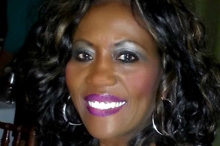
Martha Daniel is being honored as a Women Veteran Leaders Champion of Change.
Serving my community has always been an important part of my personal and professional life. As a veteran entrepreneur, I founded our Orange County, California chapter of the Elite SDVOB Network. We are actively working towards helping other veterans establish new businesses and grow their current businesses.
Last year, we established a Concierge Program for our veterans returning home. If they need a bank, lawyer, or help understanding how much they should spend on marketing, this program gives them a chance to get “one-on-one” interface with professionals and agencies that have signed up to help other veterans.
I also believe that it is critical to inspire our youth to achieve academic success. I speak to girls through organizations like Girls Inc, Girl Scouts of America, Young Ladies with Potential, and college students. I have sat on the advisory board of EmpowHer Institute, and I am a national speaker supporting the education initiative STEM (Science, Technology, Engineering, Math), which encourages girls and women to pursue education and careers in STEM fields. I try to teach women and girls to know their worth so that they can embrace their dreams with boldness, confidence, and a level of certainty that success can be achieved.
As I mentor individuals, I share with them a quote by Dolly Parton that I love. She said, “if you want the rainbow, sometimes you gotta put up with the rain.” That’s one of my favorite quotes that I live by. I say that the first order is to understand that you are going to have some rainy days.
Over the years, I have developed another belief that is very important in order to be successful. GUTS is an acronym I use to describe it. You’ve got to have what I call GUTS. This is what I tell other entrepreneurs, girls, or women who want to step out to achieve their dreams.
G = Greedy: You can’t be greedy. You just have to know that there is enough opportunity and success out there for everyone. You don’t have to take someone else’s idea; you don’t have to do wrong things. You just have to know that there are enough opportunities so that when you decide to move into your space, you can do it and not be greedy.
U = Unity: You cannot discriminate or segregate yourself. No person is an island, and you cannot build your success alone. Your network is extremely important. The way you can avoid many errors and making mistakes in life is by talking with others who have gone before you who can share their experiences and wisdom.
T = Trustworthy: Say what you mean, mean what you say. Be dependable, be responsible, be honorable, be faithful, and do a good job. You will always have your reputation, so make it a good one!
S = Spiritual: As an ordained minister of the African Methodist Episcopal Church, I believe in God. I encourage all that I come into contact with to step out on faith and trust in the Almighty, because there are some things you just can’t fix alone. It is important to know that there will be trials, challenges, and decisions that you will have to make that no one in the human race can help you with; it’s going to take divine intervention.
Martha Daniel is the Founder, President and CEO of Information Management Resources, Inc, a Service Disabled Veteran and Woman Owned Small Business that delivers cyber security, program management, engineering, and technology support to federal and state government agencies and commercial business enterprises.
Learn more about VeteransRaising Educational Expectations of Young Latinos
Posted by on April 3, 2014 at 11:17 AM EDT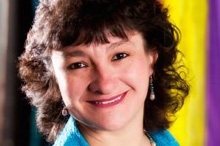
Graciela Tiscareño-Sato is being honored as a Women Veteran Leaders Champion of Change.
As she exited the school auditorium, the little girl tugged gingerly on my sleeve. She had just watched me do my “STEM of Aviation” presentation that included a reading of Good Night Captain Mama/Buenas Noches Capitán Mamá, the first bilingual children’s book about women in the military. Excitedly and in Spanish she exclaimed, “Capitán Mamá, yo quiero volar en aviones como tu!” [Translation: Captain Mama, I want to fly on airplanes like you!]
Squatting down to her eye level, as mothers intuitively do, I told her I know she’ll learn all the math, science and reading needed to make her dream happen. Holding her hand, I told her to never, ever let any adult tell her she couldn’t do it. She smiled and joined her class. In that precious moment, the decision to use my status as a Latina military veteran turned publisher of bilingual and multicultural books that spark dreams of adventurous futures, was solidly validated. This little Latina whose first language (like mine) was Spanish, was now dreaming of one day flying airplanes.
As an American-born daughter of Mexican immigrants with a Master’s degree, silver Air Force aviator wings, and two decades of global work experience, my mission as a social entrepreneur in educational publishing is to create aspirational literature that’s widely adopted in schools and showcases the many success stories from my beloved Latino community. I intentionally pursued this endeavor for the benefit of young students and to simultaneously help reverse decades of low expectations of Latino students and negative media stereotyping in all its forms.
This work was sparked by hardship twelve years ago, when I birthed my severely premature, one-pound baby girl. Documenting the 137-day hospitalization and her blindness helped me cope with the difficulties. We’ve always been encouraged by parents of older blind children to have high expectations.
Our daughter is now a joyful Braille reader and writer, a whiz with adaptive technology, the 5th grade commencement speaker and a finalist in the “Braille Bee” at the California School for the Blind. If she can achieve all that without eyesight and with a severe hearing impairment, imagine what little Latinos without those impairments can accomplish, if only all educators, administrators and parents have high expectations of them.
Our nation is facing one of the greatest civil rights challenges of our time–weak educational attainment numbers for our fastest growing ethnic group. In 2011, as we launched our first book, Latinnovating: Green American Jobs and the Latinos Creating Them, I cited frightening, absolute numbers from the National Center for Education Statistics in my article titled “Two by 2020 Mentoring Challenge.” The USA is only graduating 140,000 Latinos annually with bachelor degrees (versus 611,000 needed annually to return us to the top of the most-educated nation list.)
This country needs MANY more entrepreneurial success stories of people with last names like Ramirez, Salazar, Caballero, Rincon and Rojas as profiled in our Latinnovating series. It’s all-hands-on-deck time. If you have a college degree will you please pledge to mentor two Latino students toward their degrees by 2020? Millions of children of immigrants need mentors to ignite their imaginations and provide guidance on how one achieves a degree. This is how we can “Out-innovate and out-educate” other nations, rising to the challenge stated by President Obama.
I’m deeply honored to be recognized by the White House for my military service and my social entrepreneurship work. I recognize that my professional life, since breaking tradition and leaving my parents’ home to attend Berkeley on an Air Force ROTC scholarship, has been blessedly extraordinary. I’m compelled to motivate others to follow my lead and those whose stories my team and I are privileged to publish.
Graciela Tiscareño-Sato is CEO and Founder of award-winning, educational publishing firm Gracefully Global Group LLC located in the San Francisco Bay Area where she serves K-College students and educators as a bilingual STEM consultant. Graciela is the author of the Captain Mama and Latinnovating book series, and a sought-after keynote speaker and co-founder of the National Women Veterans Speakers Bureau, the first such bureau comprised entirely of professional speakers who are veterans and published authors.
Learn more about VeteransMaking Health Possible
Posted by on April 1, 2014 at 1:44 PM EDT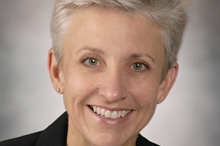
Stacey Young-McCaughan is being honored as a Women Veteran Leaders Champion of Change.
What an incredible honor it is to be named by the White House as a Champion of Change. While the award recognizes people attempting a seemingly impossible task—changing systems from the bottom up—I have seen that good ideas are infectious and spread like wildfire.
It has been my good fortune, in my military and post-military careers, to be part of complex systems and multi-disciplinary teams spurring and promoting great ideas, particularly when it comes to improvements in military and veteran health.
As a registered nurse with a doctoral degree in physiological nursing, I joined the Army Nurse Corps right out of college, eager for the wide range of nursing experiences it offered and the opportunity to care for our Service Members and their families. That 29-year career included a variety of clinical and research positions with a primary focus in oncology. It also led me to assignments as Deputy Director of the U.S. Army Medical Research and Materiel Command Congressionally Directed Medical Research Programs; Chief of Evidence-Based Practice for the U.S. Army Medical Command Quality Management Division; Chief of Nursing Research and Chief of Clinical Investigation for Brooke Army Medical Center.
The patients I cared for taught me great courage in the face of life-threatening disease and injury. The cancer survivors I worked with taught me the power of advocacy. The individuals who participated in my research operationalized the joy of discovery as well as the challenge of moving research into practice.
Upon my retirement from the Army, an opportunity with the School of Medicine at The University of Texas Health Science Center at San Antonio presented a new challenge. Lt Col (retired) Alan Peterson, PhD, a former Air Force psychologist, asked me to join a world-class, multidisciplinary and multi-institutional research consortium that he directs. STRONG STAR, or the South Texas Research Organizational Network Guiding Studies on Trauma and Resilience, was funded in 2008 by the Defense Department to improve prevention and treatment efforts for combat-related posttraumatic stress disorder (PTSD) and comorbid conditions among military service members and recently discharged Veterans.
In August 2014, President Obama announced that our group would lead the new DoD-VA-funded Consortium to Alleviate PTSD (CAP), one of two consortia established as part of a National Research Action Plan to improve care for those suffering from the signature wounds of the wars in Iraq and Afghanistan: PTSD and traumatic brain injury.
Serving as part of the incredible STRONG STAR and CAP teams as Director of Research has allowed me to continue working with military providers and researchers in a highly meaningful way, as together we strive to develop and evaluate the best methods for helping our nation’s war fighters recover from the psychological wounds of war. It has been exciting to work alongside Dr. Peterson and other esteemed colleagues to establish a highly effective research infrastructure to support 24 ongoing projects; over 20 collaborating civilian, military, and VA institutions; and over 130 partnering investigators.
Particularly exciting is that over 1,000 Service Members and Veterans have been recruited into clinical trials testing evidence-based treatments from the civilian world for their effectiveness with combat-related PTSD, and that I’m able to direct my own project testing an exercise intervention for PTSD.
As STRONG STAR and the CAP move forward, we continue to look for opportunities to advance the care of our military members exposed to combat trauma. We believe that PTSD can be cured and that striving for anything less is a disservice to the men and women who put themselves in harm’s way in service to our nation. Our challenge is making health possible.
Stacey Young-McCaughan, RN, PhD is a Professor in the School of Medicine at The University of Texas Health Science Center at San Antonio and the Director of Research for the STRONG STAR Multi-disciplinary Research Consortium designed to understand, prevent, and treat combat-related posttraumatic stress disorder and comorbid conditions among military Service Members and recently discharged Veterans.
Learn more about Veterans
- &lsaquo previous
- …
- 35
- 36
- 37
- 38
- 39
- 40
- 41
- 42
- 43
- …
- next &rsaquo


Twitter